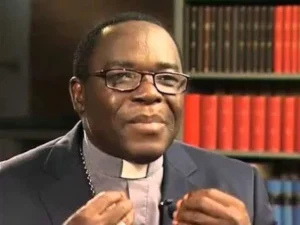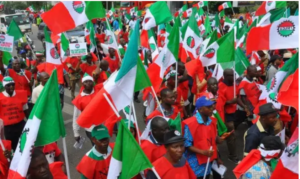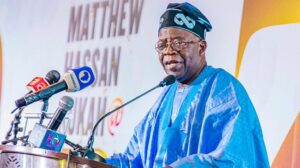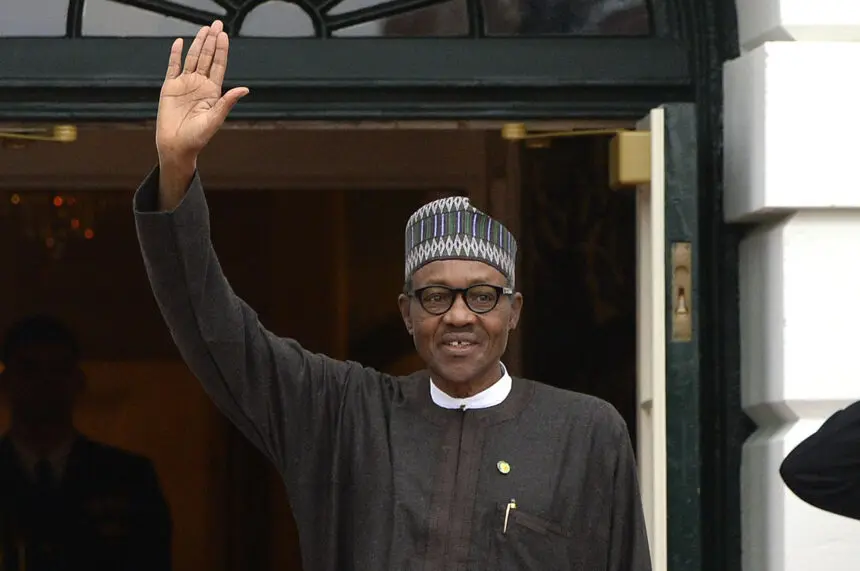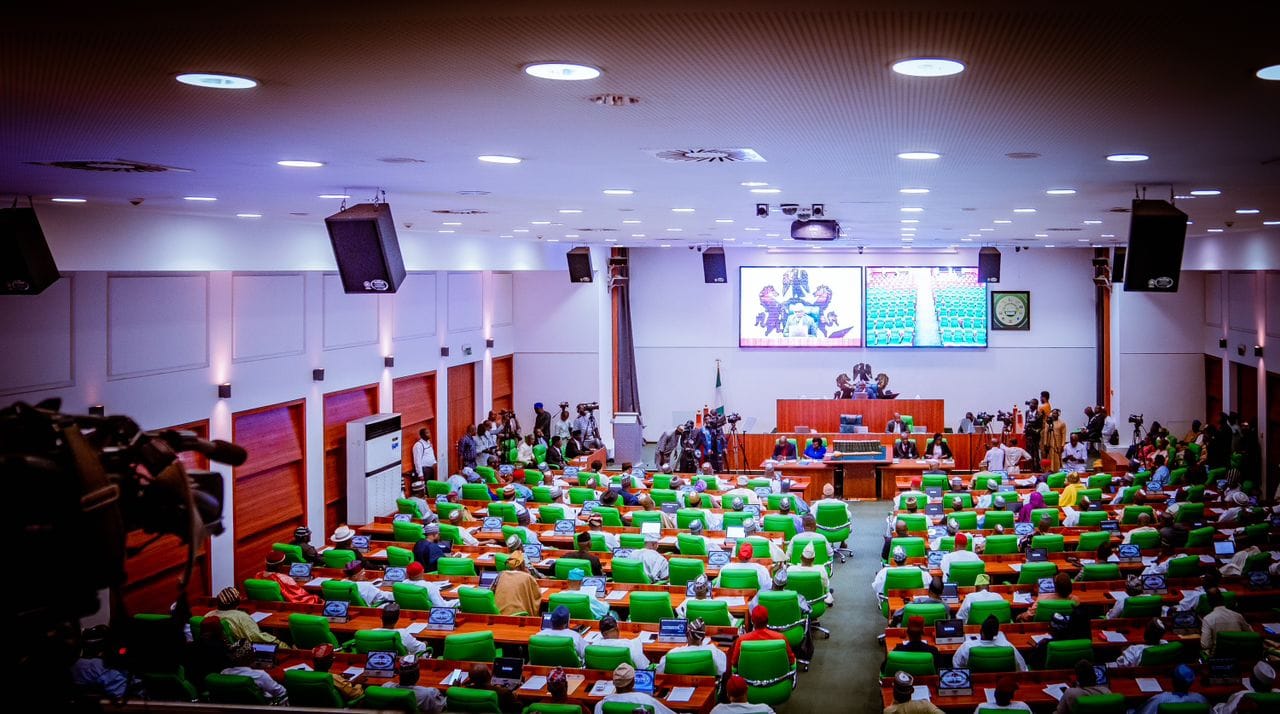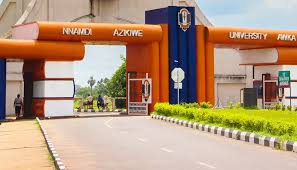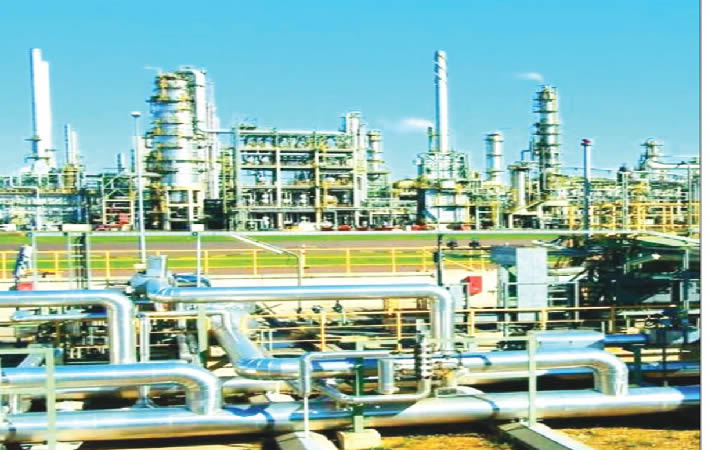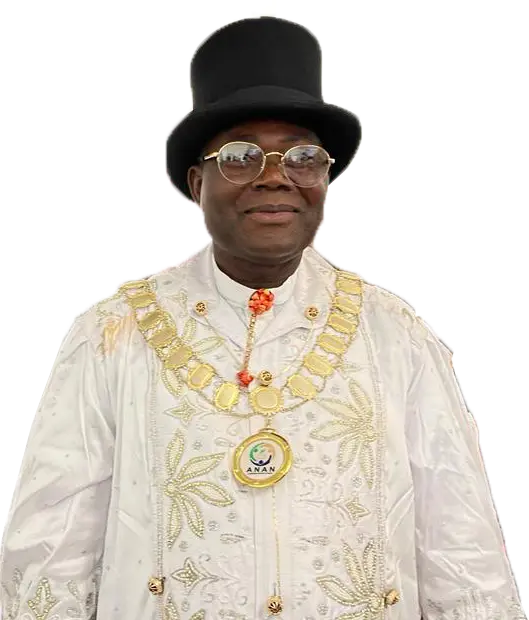
Unveils ANAN Club for varsities, polytechnics
‘Petrol subsidy removal should be gradual’
Association of National Accountants of Nigeria, ANAN, recently held its 41st Annual General Meeting, AGM, where new Council members were unveiled and the 13th President of the association, Dr. James Neminebor, inaugurated. In this interview, Neminebor bares his mind on his programmes for ANAN and the proposed petrol subsidy removal among other issues in the polity. Excerpts:
How does it feel to be President of ANAN?
Well to be President of any association is not a child’s play, particularly to talk of a leading professional accounting body like ANAN. It is a challenge. It means you have to prepare for it. The arrangement in ANAN prepares you for President, just like what Rotary International does. ANAN takes you first into membership Secretary, the level that prepares you for the Secretary, Treasurer, Second Vice President, First Vice President before you become the President. That is called the ascension line. As you enter the ascension line, you know that one day you can become President. For two years you serve in one particular position. I served for eight years from membership Secretary; now I have two years to serve as President, making 10 years. So, because of the special training in ANAN you are always prepared, you are focused that one day you can become President. It is not like any other professional body where elections hold. As soon as you succeed as Secretary, in eight years you become the President. That is the arrangement in ANAN and so we are prepared to serve.
What are you bringing to the table?

The good thing in ANAN is that all the past Presidents came with focus and the focus was to develop the personnel, infrastructure, get an outreach, visibility, sell ANAN to the public. Everybody does his best. As I am coming in, I am only going to build on the ladder where they have stopped and, by the grace of God I will fulfil my dream. However, I have my special dreams, which I read during my inauguration.
Your area of focus..
I have my special dreams. ANAN got a university four years ago in Jos. I want to build on the university. Apart from the College structures the university is using, we need more hostel accommodation. The university is for Master’s and PhD students. There is need for special hostels, not the one undergraduate students use. Sometimes, oil and other companies might send their staff for training, these are people who are used to good life; they cannot manage what undergraduates use. We will build special hostels for them. We are thinking of a way to make ANAN to be known at the university. For a student who enrols into the university, our laws say that you must hold HND in a recognised polytechnic or BSc in a recognised university.
That means those who studied in recognised polytechnics and universities are the people who are qualified to come to our College of Accountancy. There is a way to make them know from the beginning that there is a place called Association of National Accountants of Nigeria, and that when you finish your accounting course you can come to the ANAN University. And we want to set up ANAN Club in all polytechnics and universities. We will start with one in each geo-political zone of the country, at least one polytechnic and one university in each zone of the federation and experiment with that for two years. If we see a reasonable success, we can extend it to other polytechnics and universities in other parts of the country. ANAN has had several MoUs and MRs with foreign professional accounting bodies in the past. We intend to extend the visibility, by establishing the links created by our past Presidents to attain international status, so that the name ANAN can become a household name in the world. Right now, it is a household name in Nigeria and Africa.
How realistic is this objective?
Right now, I am the Treasurer of Accounting Bodies of West Africa, ABWA, which means that in West Africa we are very recognised. Recently, we hosted all the accounting bodies in West Africa. They could not go to our university in Jos, which is an Accounting Village, which only ANAN has in the whole of Africa and the world; we and Scotland are the only accounting professional body that own a college and university.
What are other innovations in your plan?

I envy what the lawyers do. If a SAN is in court with a graduate lawyer, the SAN must take pre-eminence before the junior lawyer. I want to introduce that in our profession. We have Fellows who are equivalent to the SANs in law but when we organise occasions, Fellows drag in line with other accountants. I am creating a committee that will take care of the welfare and recognise the special rights of Fellows, so that the Fellows, particularly in ANAN, will be treated with special recognition. Although we already have Membership and Privileges Committee, that one takes care of members including Fellows. I want to separate them. Even the sitting positions in our gatherings should change, unless you are a Fellow, you cannot go there and sit.
What are those things your predecessors didn’t do that you would want to do this time around?
For the eight years I have remained in ascension line; if you take in too plenty, so many things will inhibit your ability to succeed. It could be finance, time or nature. If I am able to achieve three or five, I will be satisfied. Of recent, the social climate in Jos has not been too good. It will be difficult for anyone to send his little child that has just finished from university to Jos. We intend to build a campus of ANAN University in Abuja and ask NUC to accredit it so that we can start admitting students. You will now be free to bring your child to Abuja. If I can get good land, put up structures for our undergraduate programme in our Abuja campus, that will be fine.
How do you intend to leverage ICT to empower your members?
ANAN College has a very robust library which we want to turn to a virtual library. We are going to use it to empower and prepare our members for future challenges. We also have an ICT centre donated by the Federal Inland Revenue Service to complement what we have on ground.
How do you intend to relate with ICAN?
We have from the beginning taken ICAN as an elder brother. If ICAN and ANAN cooperate in Nigeria, we will rule Africa and the world in the accounting profession. Already, with only ANAN, the whole Africa respects Nigeria; if we now join forces, ICAN and ANAN, Africa will be too small for us. Everybody will want to come to Nigeria to see how accounting profession is run. ICAN mentored Ghana to establish the Institute of Chartered Accountants of Ghana, ICAG; in ANAN we are mentoring Zimbabwe and other countries. In our College, we give scholarships to French speaking countries, they don’t have a very good accounting system; you will be surprised that they have mathematicians in their accounting system. And that is why we have French Laboratory. Every year, we have about 6, 8, 10, 12 foreign students from French speaking countries who are in our accounting school. That is why we have French Laboratory in the College, even though, Nigeria is English speaking. We have it because Nigeria is surrounded by French speaking countries, and there are so many opportunities in these French speaking countries. So, if you as a professional accountant step into any of these French speaking countries, you should be able to speak elementary French. We have elementary and business French in our College, so that our members will be able to communicate and do small business in French language and they must pass it before we allow them to go. And when the French students come, because we have French teachers, we groom them in English for some weeks before they enter classroom. In fact, there are many of our students who passed through our College that are now senior accountants in Cameroun.
How do you intend to instill discipline in the profession?
Advertisement
In ANAN, we have disciplinary committee. If any of our members errs, and is reported to us, we send them to the disciplinary committee and we look into the matter and recommend sanction. When the sanction is recommended, we have tribunal in our law book which has same powers as the High Court; whatever the tribunal says stands.
Do you think the redesigned Naira policy was well thought out?
Government is a very wonderful institution. Before government comes with a policy, they must have sat down to look at the policy, the merits and demerits. However, often times they don’t allow professional bodies to be involved while making decisions.
If professional bodies had been called, that policy is a very fine policy but in its implementation there was an error. And we told them from the beginning that the time gap was not enough, considering the election that was coming. If you are withdrawing money from circulation, as you give in, you seize it, it doesn’t come out; you keep bringing out the new one. You don’t need to give new one and over a period you mop up the old, and it will be seamless.
Nobody quarrels when you pay in, you give the person the new one, just like the old money that is burnt, nobody gets the effect. You don’t need to give time line to panic people. Time should be reasonable enough. If we are talking of billions, you can mop them up in circulation but we are talking about trillions. We need to give people time. We should ask, what is the percentage of educated people in rural areas? In things like this, professional bodies should be involved.
What is your advice to the incoming administration, especially in the area of petrol subsidy removal?
Government subsidises petrol because it is a social leverage. People feel they have oil, even though the cost of production is high, we need to make it cheap for our people. When Gaddafi was in power, petrol was almost free in Libya. Government can do same here. When that social leverage becomes a problem in your budgetary plans, you can begin gradual removal of subsidy but not totally removing it. Removal of subsidy can actually reduce fraud. I remember when I bought my first car in 1980s, petrol was selling for 14, 18 naira. When the price went up to 22 naira we were shouting. This thing should be gradual particularly because we are an oil producing country. If you go to other countries, the price they sell diesel is really very high because they buy from us. But here we are the owners, that social capital is not something bad for your country because you produce it. There are hazards, go to Port Harcourt, you see sooth; in fact you cannot drink water because they produce oil and gas, the same thing in Bayelsa.
Sometimes you go to the river you see fishes floating. It brings so much damage to the environment and poverty to the people. The Ijaw man is a migrant fisherman, he follows fishes everywhere, but now there are no more fishes to follow. I don’t have fish to eat and yet you want to kill me with high price? I keep asking, what have we done to those who produce oil? If I am in government, I will impose special tax on companies that produce oil, and tell that before they drill oil they should make special roads to the place. My grandmother has not seen any of my cars. Oil wells are in my backyard, yet I cannot drive my cars. Oil companies come with their choppers and land in my backyard; where there has been electricity since I was born, it has not blinked. Only Brass has been able to fight Agip that gave them light. If you go to Brass, they don’t know darkness, they have light all the time. That is the only town in the whole of the Niger Delta that has light, yet there are so many other communities that produce oil but in darkness. So, why kill them with high oil price?
On Nigeria’s debt profile…
Advertisement
On foreign debts, I will say there is no country that does not have foreign debt but the Debt Management Office should be able to enter into interactive arrangements with these countries, such that sometimes you have debt buybacks, gradual payments. That you take loan and do not pay brings injury to your country. One day there will be problem like what China is doing with some African countries, seizing their fiscal assets, which will not be good for generations coming. Every foreign debt should be properly managed and not allow it to accumulate for too long.
What will you like to be remembered for?
I will be happy if all I have enumerated are actualised. If finance did not give me problem, political system did not give me problem, time did not give me problem and natural occurrences don’t come to inhibit my plans… We never expected COVID, but it came and disrupted our plans. So, if I am able to get my entire action plan through, I will be very happy. We are prepared to work. I will work in harmony with my Council members, I will respect their feelings and I hope they too respect my feelings. If we do, we will achieve all that we intend to achieve.
(Vanguard)


